March 28, 2019
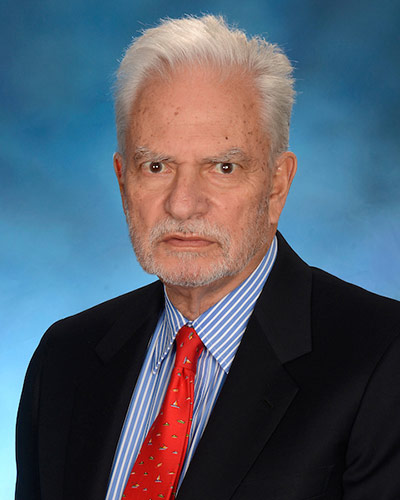
Howard Eisenberg, MD, to Conclude More Than Two Decades of Chairmanship; Graeme Woodworth, MD, Named Successor as Interim Chair
Dean E Albert Reece, MD, PhD, MBA, announced today that longtime Chair of the Department of Neurosurgery and nationally-recognized neurosurgeon Howard M. Eisenberg, MD, will be stepping down at the end of this academic year as chair after 23 years. He will return to the full-time faculty of the UMSOM Department of Neurosurgery, retaining his title as the R.K. Thompson Professor of Neurosurgery. He will continue his research and his efforts advancing surgical techniques including gamma knife radiosurgery and image-guided focused ultrasound.
Dean Reece also announced that Graeme F. Woodworth, MD, Professor of Neurosurgery, who serves as Director of the Brain Tumor Treatment and Research Center at the UM Marlene and Stewart Greenebaum Comprehensive Cancer Center, will serve as the Interim Chair of the Department of Neurosurgery, effective July 1, 2019.
“We cannot thank Dr. Eisenberg enough for his excellent leadership and service to the UMSOM and the Department of Neurosurgery. He has been the quintessential physician-scientist and academic leader, and we are fortunate to have him continue his work on the Neurosurgery full-time faculty,” said Dean Reece, who is Executive Vice President for Medical Affairs and the John Z. and Akiko K. Bowers Distinguished Professor. “Dr. Woodworth has been mentored by Dr. Eisenberg and has followed in his footsteps over the past several years,” he continued. “We extend our congratulations and thanks to both Dr. Eisenberg and Dr. Woodworth in their distinguished careers.”
Dr. Eisenberg’s Legacy
Dr. Eisenberg is recognized as one of the nation’s top neurosurgeons and pre-eminent experts on traumatic brain injury and the blood brain barrier. As Chair of Neurosurgery, he has led a group of neurosurgeons and scientists in providing innovative programs that result in safer, less intrusive and more effective treatments, particularly for traumatic central nervous system injury, and more recently, for Parkinson’s disease. The research interests of the Department have extended from the mechanisms of traumatic central nervous system injury and stroke, to the biology of brain tumors.
Most recently, Dr. Eisenberg has been principal investigator for a pivotal study of Parkinson’s disease. This work has resulted in ground breaking research and a clinical trial on focused ultrasound to treat essential tremor and Parkinson’s disease, which has received extensive national and international attention.
“I have been fortunate to be surrounded by a wonderful and talented group of faculty members, residents and staff.” Dr. Eisenberg said. “The Department has come a long way from when my colleagues (Marc Simard and Francois Aldrich,) and I first arrived, thanks to the strong advocacy and support from the School of Medicine and the Medical Center. I am confident that Dr. Woodworth will continue to move the department upward to the next level.”
Dr. Eisenberg’s career in neurosurgery has spanned several decades with key leadership and professional appointments in his field.
He served as Chairman of the American Board of Neurosurgery; Vice Chairman of the Accreditation Council for Graduate Medical Education Residency Review Committee for Neurosurgery; Chairman of NIH Study Section (Neuro A); Chairman of the Editorial Board of the Journal of Neurosurgery; and President of the American Society for Neurosurgery (the Senior Society).
His expertise in the field is evidenced by numerous listings in Castle Connolly America’s Top Doctors (2002-2008, 2010-2016). His publications have been cited over 18,000 times. Since 2013, Dr. Eisenberg has served as a consultant to the National Football League.
Dr. Eisenberg received his BA Degree from Syracuse University, and his MD Degree from The State University of New York, Downstate Medical Center, New York, NY. He completed his internship, residency and fellowship at New York Hospital/ Cornell University. He was a resident in Neurological Surgery at Children’s Hospital Medical Center and Peter Bent Brigham Hospital, Boston, MA; a Fellow in Neurology at the National Hospital for Nervous Disease in London; and then a Clinical Fellow in Surgery at Harvard Medical School.
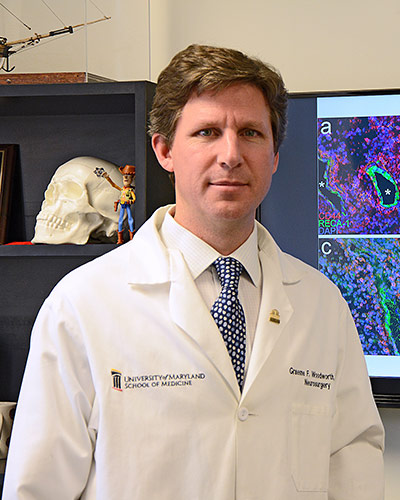 Dr. Woodworth’s Leadership
Dr. Woodworth’s Leadership
As the founding Director of the Brain Tumor Treatment and Research Center at the Greenebaum Comprehensive Cancer Center, Dr. Woodworth has brought together experts within the University of Maryland system, helped recruit new key team members, and raised with his team over $10 million in extramural funding and contracts to support the clinical and research programs. Within this role, Dr. Woodworth provides leadership and surgical care within a multidisciplinary group of radiologists, medical oncologists, radiation oncologists, neurosurgeons, and pathologists, treating brain cancer patients. His clinical activities facilitate and guide the cross-disciplinary group of engineers, cancer biologists, and clinician-scientists within the Translational Therapeutics Research Group (TTRG) – a unique research team co-led by SOM faculty members, Anthony Kim, PhD, and Jeffrey Winkles, PhD, that is addressing critical obstacles to counteracting the patho-biology and improving treatments for brain cancer.
“I am honored to have the opportunity to lead the neurosurgery department in this transition,” Dr. Woodworth said. “Dr. Eisenberg has been an exceptional leader and role model as a department chair and neurosurgeon-scientist. He deserves much of the credit for our group’s success and my personal success as a brain tumor surgeon and NIH-funded investigator.”
Dr. Woodworth joined the UMSOM in 2012 and advanced to his current role as Professor in 2018, with secondary appointments in the UMSOM Department of Diagnostic Radiology and Nuclear Medicine, and the Department of Anatomy and Neurobiology. He has worked closely with Dr. Eisenberg on exploring the potential of MRI-guided focused ultrasound to treat essential tremor, Parkinson’s disease, and brain tumors – conditions that impact millions of patients in the U.S. and around the world.
“This is an exciting time to be at the University of Maryland School of Medicine and Medical Center, with significant investments occurring in the Greenebaum Cancer Center, multi-disciplinary programs and facilities, and the new Center for Biomedical Innovation.” Dr. Woodworth added. “I am excited to integrate the resources and expertise of the neurosurgery department with these initiatives.”
Among his numerous honors and awards, Dr. Woodworth has received the Research Scholar Award from the American Cancer Society, the Andrew J. Lockhart Memorial Prize from the Focused Ultrasound Foundation and the University of Maryland Research and Innovation Award from the University’s M-Powering the State Program.
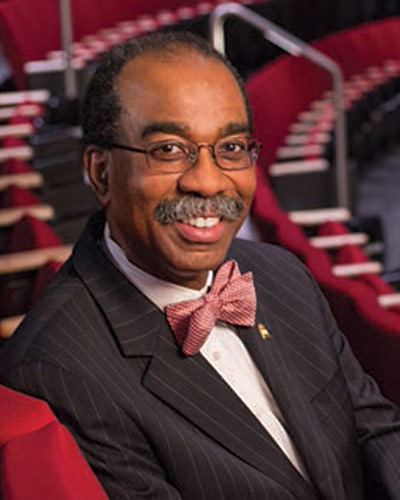 He earned his B.S. Degree in Chemistry from Tufts University and received his MD Degree from Johns Hopkins University School of Medicine. He completed both his internship and residency at Johns Hopkins University Hospital. He received additional fellowship training in the Neuro-Oncology and Cancer Nanomedicine programs at Johns Hopkins University School of Medicine, as well as advanced surgical training in cranial neuro-endoscopy at the Weill Cornell University Department of Neurological Surgery in New York, NY.
He earned his B.S. Degree in Chemistry from Tufts University and received his MD Degree from Johns Hopkins University School of Medicine. He completed both his internship and residency at Johns Hopkins University Hospital. He received additional fellowship training in the Neuro-Oncology and Cancer Nanomedicine programs at Johns Hopkins University School of Medicine, as well as advanced surgical training in cranial neuro-endoscopy at the Weill Cornell University Department of Neurological Surgery in New York, NY.
“We believe this will be a smooth transition in the leadership of this critical department,” Dean Reece added. “We are fortunate to have two nationally-recognized neurosurgeons on our faculty to continue the ground-breaking work that is dramatically improving the lives of patients with brain cancer and neurological diseases every day.”
About the University of Maryland School of Medicine
Now in its third century, the University of Maryland School of Medicine was chartered in 1807 as the first public medical school in the United States. It continues today as one of the fastest growing, top-tier biomedical research enterprises in the world -- with 43 academic departments, centers, institutes, and programs; and a faculty of more than 3,000 physicians, scientists, and allied health professionals, including members of the National Academy of Medicine and the National Academy of Sciences, and a distinguished recipient of the Albert E. Lasker Award in Medical Research. With an operating budget of more than $1 billion, the School of Medicine works closely in partnership with the University of Maryland Medical Center and Medical System to provide research-intensive, academic and clinically based care for more than 1.2 million patients each year. The School has over 2,500 students, residents, and fellows, and more than $530 million in extramural funding, with most of its academic departments highly ranked among all medical schools in the nation in research funding. As one of the seven professional schools that make up the University of Maryland, Baltimore campus, the School of Medicine has a total workforce of nearly 7,000 individuals. The combined School and Medical System (“University of Maryland Medicine”) has an annual budget of nearly $6 billion and an economic impact more than $15 billion on the state and local community. The School of Medicine faculty, which ranks as the 8th highest among public medical schools in research productivity, is an innovator in translational medicine, with 600 active patents and 24 start-up companies. Th School works locally, nationally, and globally, with research and treatment facilities in 36 countries around the world. Visit medschool.umaryland.edu
Contact
Office of Public Affairs
655 West Baltimore Street
Bressler Research Building 14-002
Baltimore, Maryland 21201-1559
Contact Media Relations
(410) 706-5260
Related stories

Wednesday, November 13, 2019
UM School of Medicine Establishes Endowed Professorship in Neurosurgery Through Private Gifts and Matching State Funds
University of Maryland School of Medicine (UMSOM) Dean E. Albert Reece, MD, PhD, MBA, announced today that the UMSOM has been awarded matching funds from the Maryland E-Nnovation Initiative Fund (MEIF), administered by the Maryland Department of Commerce. The funds, when combined with private philanthropy, will enable UMSOM to establish the Howard M. Eisenberg, MD, Distinguished Professorship in Neurosurgery.

Thursday, August 09, 2018
University of Maryland School of Medicine Scientists to Conduct First FDA-Approved Study of Focused Ultrasound to Open Blood-Brain Barrier
In the first such clinical trial in the United States, physician-scientists with the University of Maryland School of Medicine (UMSOM) are investigating the use of MRI-guided focused ultrasound to open the blood-brain barrier. The trial will be conducted with patients undergoing brain cancer surgery at the University of Maryland Medical Center (UMMC).
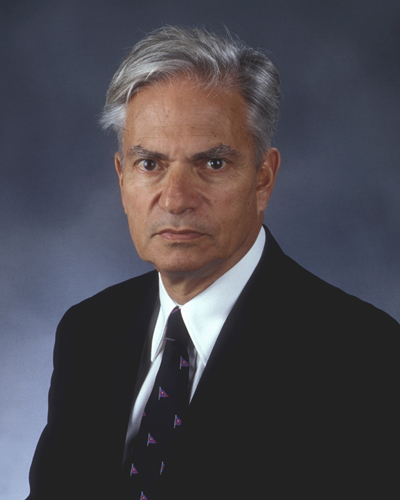
Friday, February 16, 2018
University of Maryland Medicine Leads Pivotal Study of Focused Ultrasound to Treat Parkinson's Disease
University of Maryland Medicine (the University of Maryland Medical Center (UMMC) and the University of Maryland School of Medicine (UMSOM)) is leading a phase 3 study to test the safety and efficacy of using MRI-guided focused ultrasound on the brain in order to treat Parkinson’s disease. The pivotal study is the final step before the U.S. Food and Drug Administration (FDA) will consider approving the new technology for widespread use as a nonsurgical treatment option to eliminate key motor symptoms of this common neurological condition.
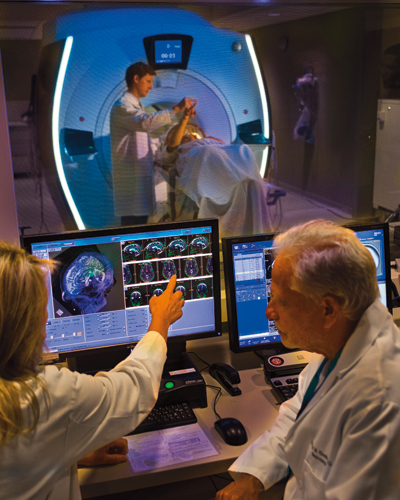
Tuesday, August 30, 2016
New Study Shows Breakthrough Treatment for Essential Tremor Using Focused Ultrasound
University of Maryland School of Medicine (UM SOM) researchers, along with an international group of investigators, have discovered for the first time that treatment with MRI-guided focused ultrasound can effectively treat patients with essential tremor (ET), a neurological movement disorder that affects an estimated 10 million people in the U.S. The results, which are published in the forthcoming issue of the New England Journal of Medicine, led to recent approval of the treatment by the Food & Drug Administration (FDA),
